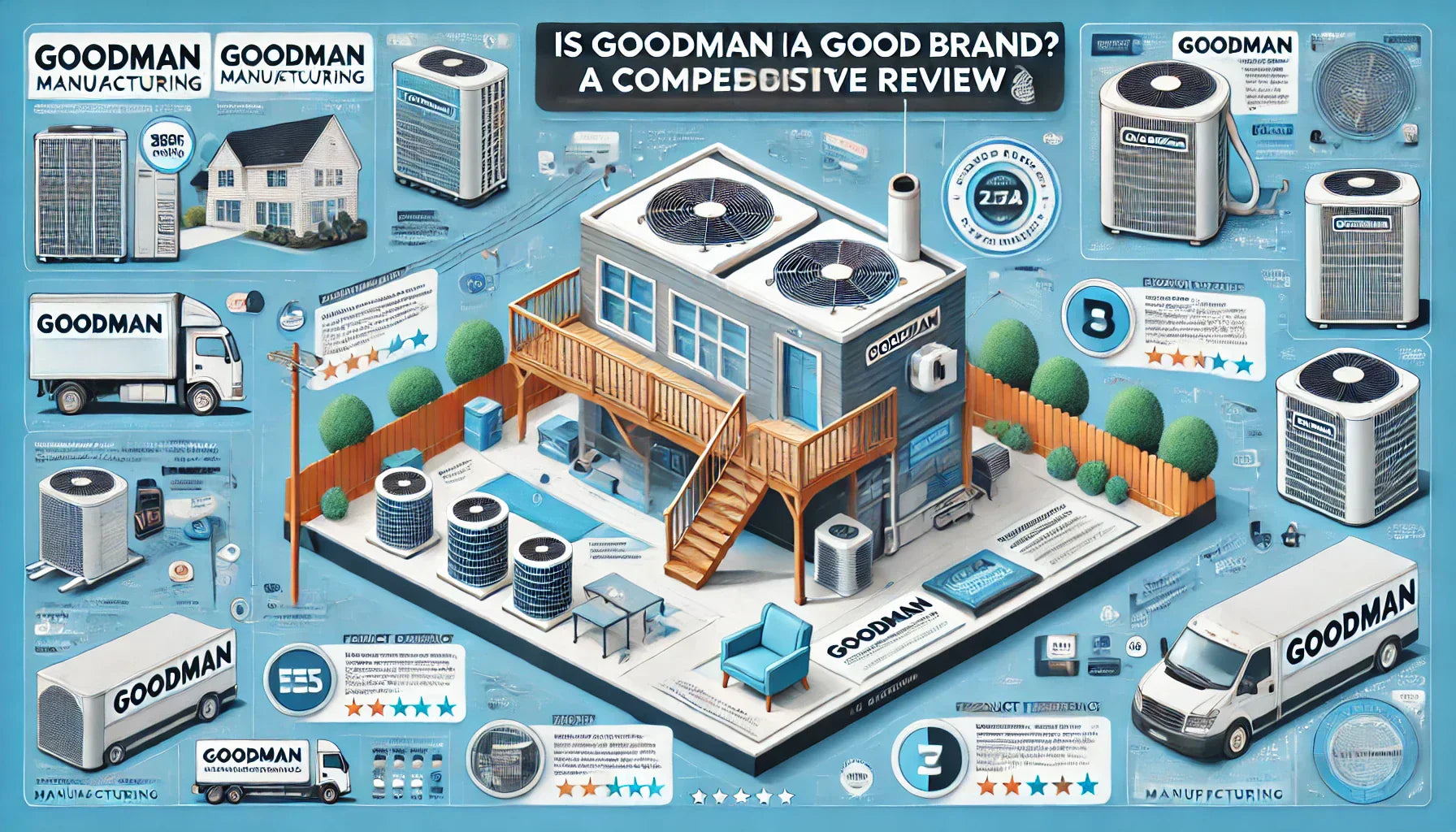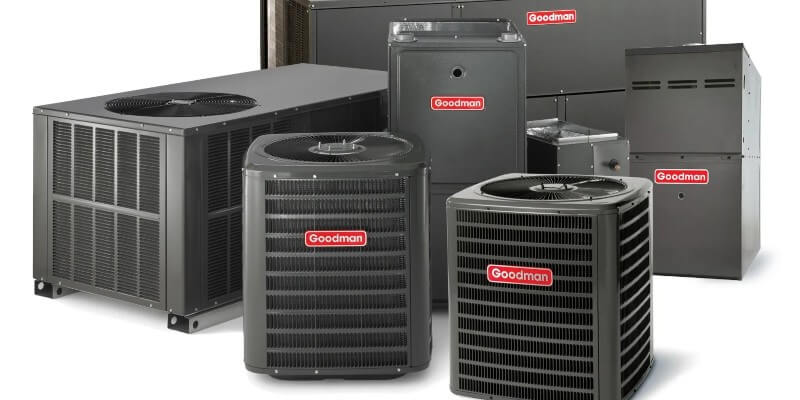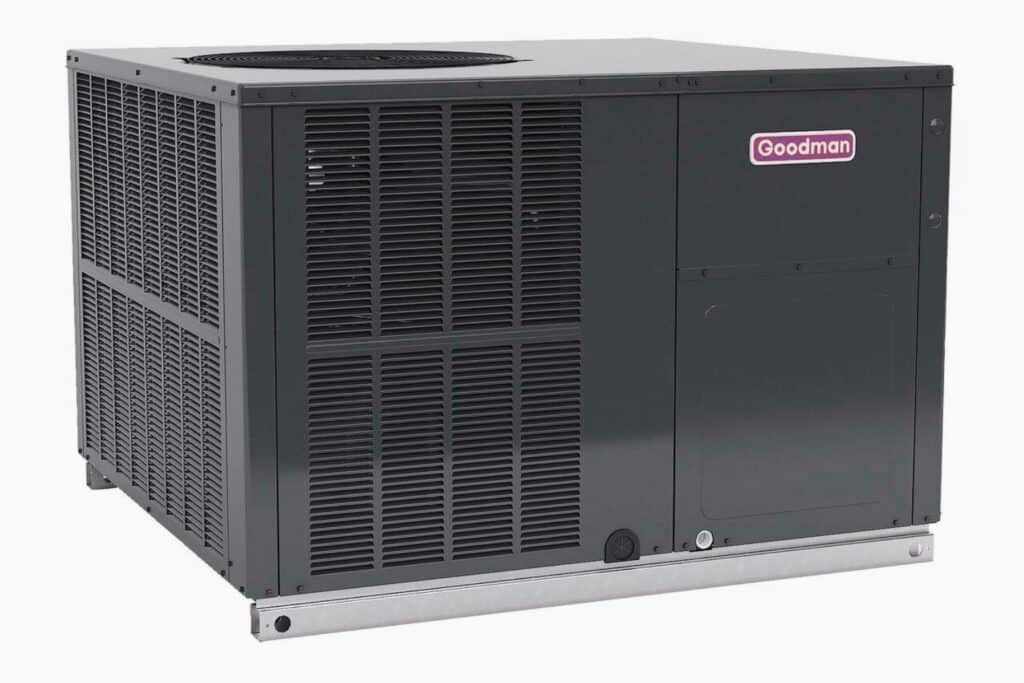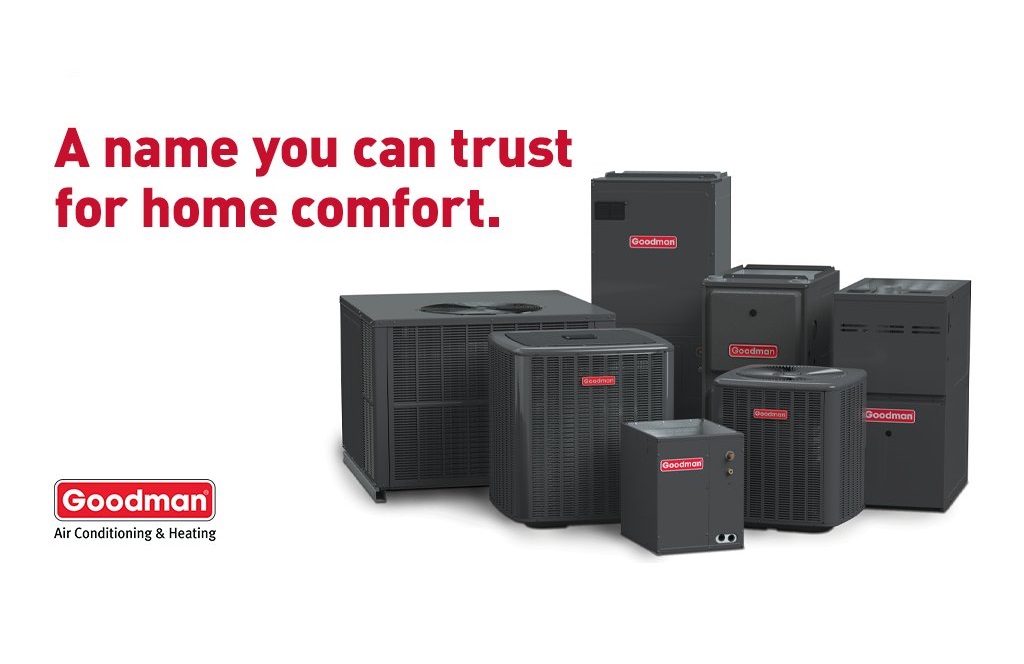Is Goodman Hvac A Good Brand

Goodman HVAC has become a household name in the heating and cooling industry, known for its affordability and accessibility. But does a lower price point mean compromised quality? This article delves into the specifics of Goodman HVAC systems, examining their performance, reliability, and overall value proposition for homeowners, technicians, and facility managers.
Understanding Goodman's Position in the HVAC Market
Goodman Manufacturing, now a subsidiary of Daikin, one of the world's largest HVAC manufacturers, has strategically positioned itself to offer a cost-effective alternative to premium brands. They achieve this through efficient manufacturing processes and a focus on core functionality. This allows them to provide a lower upfront cost, which can be attractive for budget-conscious consumers.
Key Features and Technology
While not always boasting the cutting-edge technology found in higher-end systems, Goodman units incorporate essential features for efficient heating and cooling. These often include:
- Scroll Compressors: A common feature in many Goodman air conditioners, scroll compressors are known for their reliability and relatively quiet operation. They compress refrigerant using a spiral motion, reducing friction and wear compared to older reciprocating compressors.
- Multi-Speed Blowers: Some Goodman furnaces and air handlers incorporate multi-speed blower motors. These motors can adjust the airflow based on the heating or cooling demand, improving energy efficiency and comfort by providing more consistent temperatures.
- Smart Thermostat Compatibility: Goodman systems are generally compatible with a wide range of smart thermostats, allowing homeowners to remotely control their HVAC system and optimize energy usage.
Performance and Efficiency: SEER, HSPF, and AFUE Explained
Understanding efficiency ratings is crucial when evaluating any HVAC system. The three primary ratings to consider are SEER, HSPF, and AFUE.
- SEER (Seasonal Energy Efficiency Ratio): This rating measures the cooling efficiency of air conditioners. A higher SEER rating indicates better energy efficiency. Goodman offers air conditioners with SEER ratings ranging from the minimum standard to levels that qualify for energy rebates in some regions.
- HSPF (Heating Seasonal Performance Factor): This rating measures the heating efficiency of heat pumps. Similar to SEER, a higher HSPF rating signifies greater efficiency. Goodman heat pumps come in various HSPF ratings to suit different climate needs.
- AFUE (Annual Fuel Utilization Efficiency): This rating applies to furnaces and represents the percentage of fuel that is converted into usable heat. A furnace with an AFUE of 90% converts 90% of the fuel into heat, with the remaining 10% being lost up the flue. Goodman furnaces offer a range of AFUE ratings, with some models reaching high-efficiency levels.
For example, a Goodman air conditioner with a SEER of 16 will use less energy to cool your home compared to a unit with a SEER of 13. Similarly, a Goodman furnace with an AFUE of 96% will be more efficient and cost less to operate than a furnace with an AFUE of 80%.
Reliability and Lifespan: What to Expect
Reliability is a key concern for any HVAC system. While Goodman's lower price point might raise concerns about longevity, proper installation and regular maintenance are critical factors that influence the lifespan of any HVAC system, regardless of the brand. A poorly installed high-end system will likely fail sooner than a well-maintained Goodman unit.
Generally, a Goodman air conditioner or heat pump can be expected to last 10-15 years with proper care. Furnaces can often last even longer, with some units exceeding 20 years. Regular maintenance, such as changing air filters, cleaning coils, and scheduling annual inspections by a qualified HVAC technician, is essential for maximizing the lifespan and performance of your Goodman system.
It's crucial to note that anecdotal evidence and online reviews can be subjective and may not reflect the average experience. However, a common theme in less favorable reviews is often related to installation issues or lack of proper maintenance.
Cost Analysis: Upfront vs. Long-Term
The primary advantage of Goodman HVAC systems is their affordability. The initial purchase and installation costs are typically lower compared to premium brands. However, it's crucial to consider the long-term costs, including energy consumption and potential repair expenses.
A higher-efficiency Goodman system, while potentially having a slightly higher upfront cost compared to a standard-efficiency model, can save you money on energy bills over its lifespan. Calculate your potential energy savings by comparing the SEER, HSPF, or AFUE ratings of different Goodman models and estimating your annual heating and cooling needs.
Furthermore, factor in potential repair costs. While Goodman parts are generally readily available and affordable, unexpected repairs can still impact your budget. A comprehensive warranty can help mitigate these risks.
Warranty Coverage: Protecting Your Investment
Goodman offers a range of warranties on its HVAC systems, providing homeowners with peace of mind. The standard warranty typically covers parts for a specified period, often 5 or 10 years. Some models may also offer extended warranties that cover labor costs. Registering your Goodman system promptly after installation is essential to ensure full warranty coverage.
Understanding the terms and conditions of your warranty is crucial. Be aware of any requirements for regular maintenance or professional servicing that may be necessary to maintain warranty validity. Some warranties may require registration within a certain timeframe to activate the full coverage.
Installation Considerations: The Importance of a Qualified Technician
The quality of the installation is paramount to the performance and longevity of any HVAC system, including Goodman. A poorly installed system can lead to reduced efficiency, increased energy consumption, and premature failure. Choosing a reputable and experienced HVAC technician is therefore essential.
A qualified technician will properly size the system to match your home's heating and cooling needs, ensuring optimal performance and efficiency. They will also follow proper installation procedures, including sealing ductwork, charging the refrigerant correctly, and configuring the system for optimal airflow. Don't hesitate to ask for references and verify the technician's credentials before hiring them.
Goodman HVAC for Facility Managers: A Practical Solution
For facility managers overseeing large buildings, Goodman HVAC systems can be a practical solution for cost-effective heating and cooling. While premium systems may offer slightly higher efficiency levels, the lower upfront cost of Goodman units can make them an attractive option for large-scale installations. Standardized parts and readily available technicians can also simplify maintenance and repairs across multiple units.
When selecting Goodman HVAC systems for a commercial building, carefully consider the building's heating and cooling load requirements, energy efficiency goals, and budget constraints. Consult with a qualified HVAC engineer to determine the optimal system configuration for your specific needs.
Comparing Goodman to Other Brands: A Balanced Perspective
When comparing Goodman to other HVAC brands, it's essential to consider the price-performance ratio. While premium brands may offer advanced features and slightly higher efficiency ratings, they often come at a significantly higher cost. Goodman provides a solid middle ground, offering reliable performance and essential features at a more affordable price point.
Brands like Carrier, Trane, and Lennox are generally considered premium brands, while brands like Rheem, Ruud, and York fall into a similar price range as Goodman. Ultimately, the best brand for you will depend on your specific needs, budget, and priorities.
Conclusion: Is Goodman a Good Choice for You?
Goodman HVAC systems offer a compelling combination of affordability, reliability, and essential features. While they may not boast the same advanced technology as premium brands, they provide a cost-effective solution for homeowners, technicians, and facility managers seeking reliable heating and cooling. By understanding the factors discussed in this article – efficiency ratings, warranty coverage, installation quality, and long-term costs – you can make an informed decision about whether Goodman is the right choice for your needs. With proper installation and regular maintenance, a Goodman HVAC system can provide years of comfortable and efficient heating and cooling.










